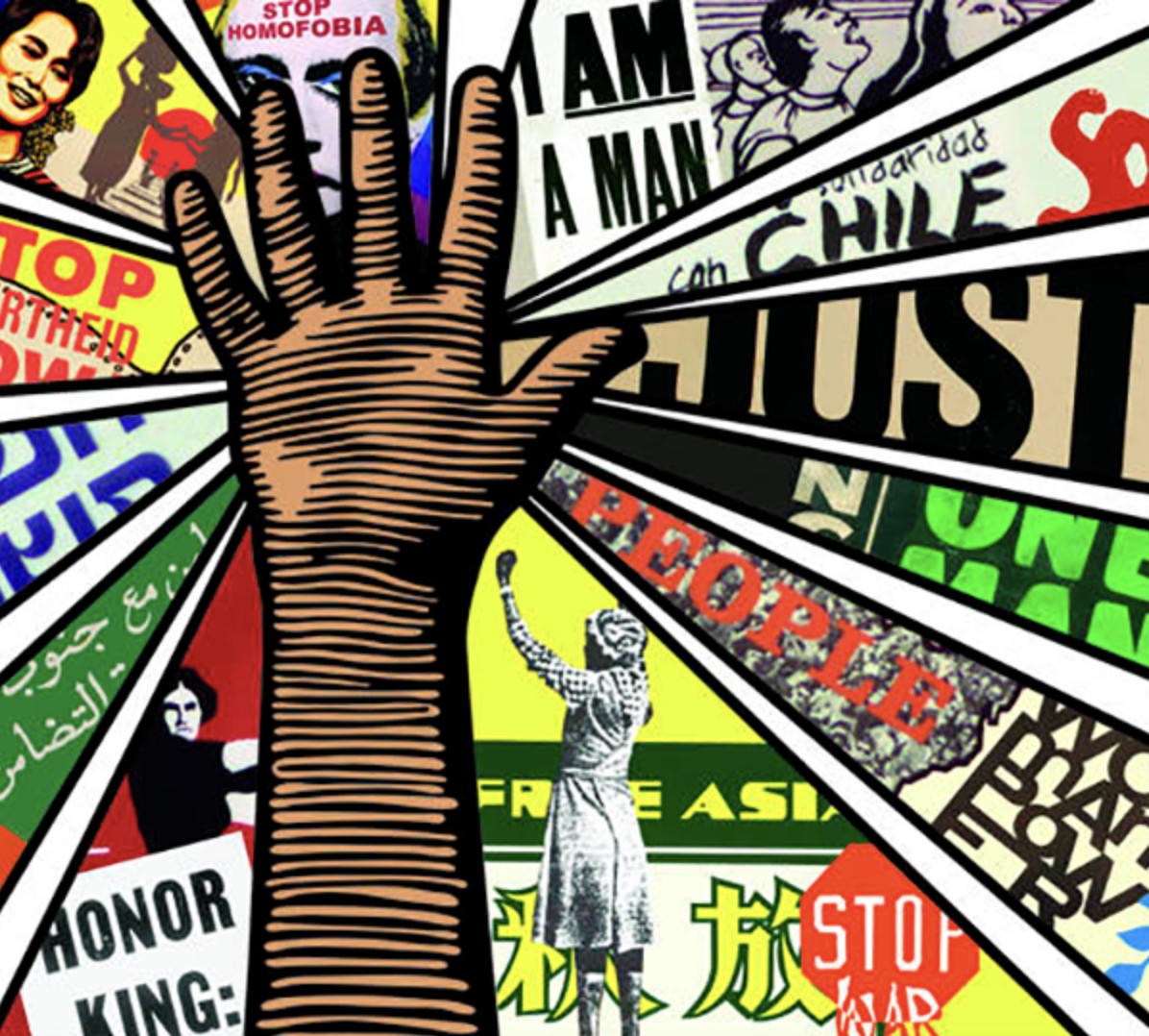Alternative Editorial: Shift In The Culture Wars
What have US Governor Ron de Santis, the X Factor, Question Time and the Amazon rain forest have in common? Well, not much on the surface: but this week they all played a role in having us think that the social imaginary - our shared sense of what is real - is subtly changing.
Subtle changes are hard to describe because they might be noticed by some - particularly those looking for change - but not by others. Those of us heavily invested in the status quo will belittle new signs, reducing whatever new possibilities they may bring to a momentary blip in a settled reality. Like those who insist that the kinds of changes we have seen in our temperatures these past few years, were experienced centuries ago as well: let's not overreact!
Others who notice small changes are often looking for signs of hope and encouragement. At the same time, in a practical way, they bring attention to developments of any kind in this era of facing multiple crises. The signs they find offer people a path to embark on. Becoming pro-active in the change arena is the best way to avoid the feeling of helplessness that has become so prevalent today.
One of our main foci at Alternative Global is looking for signs that individual human agency is beginning to find the collective conditions - relationships, renewed community, narratives - in which it can flourish. Our sense is that we are slowly emerging from an era of mass oppression, where a very small amount of people (less than 1% ref) has profited from systems that extract value from the people and from Nature. Without these systems taking care of them or ensuring that their resources can be regenerated. Never mind paying out a dividend.
Oppression until now has taken a variety of forms - slavery, subjugation to hard power (capitalism, militarism), an orchestrated addiction to consumerism and more recently by means of soft power exerted through social media.
Of course, in the midst of these eras of collective powerlessness, people have made lives that are acceptable - even joyful - on relative terms. Individual achievements are made, amidst relentless social injustice, poverty and self-denial. All the while barely noticing on a wide scale that our planet is being trashed and the animals are dying.
When we first started The Alternative Global, we were looking for solutions to our multiple crises, but we very quickly saw that the solutions - scientific and economic - were already available. What was missing was the systems that gave people access to them and the capacity - individual and collective - to take them on.
We have been asleep, drugged on the comforts of low-level responsibility for ourselves and our future. Like the frogs in the slowly warming pot of water, we have failed to notice that our capacity to jump out has diminished, maybe fatally. We find ourselves responding to shallow needs - the urge for sugar, alcohol, meat or jumping on a plane for a stag do - than taking on genuine alternatives that require delayed gratification. These are rarely deliberate decisions, but an architecture of choice that’s pre-built for us, leaving us ignorant of the consequences.
However, what we also saw when we started paying daily attention (via our blog The Daily Alternative) is that the backlash against such powerlessness began long ago, with multiple movements against social injustice and for human flourishing. But we also observed that, after waves of development over decades and even centuries, they had massively accelerated with the birth of the internet. This innovation not only gave people access to information they needed (e.g. the facts behind deprivation) but also to each other, on a global scale. Indeed, the internet provided a new public space in which anyone could appear and gain attention for previously excluded interests.
Movements for the climate, against the abuse of women, for animal welfare, against the systemic murder and incarceration of black people, for gender pluralism, for freedom of expression - all took on extra and disruptive power. While each had specific aims pertinent to their constituency’s suffering, collectively their aim was to change the status quo. Having experienced their own 'awakening' to their true conditions, they have become determined to wake everyone else up too.
Suddenly, causes that had depended upon the steady growth of personal and global networks - rarely coming out of the shadows - found themselves on the front pages of newspapers everywhere. In some cases, very small groups of people - Fridays for Future or, at the other end of the scale, Isis - could change government policy.
While none of these movements had whole system change as their focus, together they have added up to a general turbulence in society—one that has destabilised authority, and the institutions their power is embedded in. Perhaps the most obvious is the police force. Over the years, despite having many good people signed up,the police have been shown to be 'institutionally' racist, sexist, homophobic and brutal.
We are at a difficult point now in several countries in Europe and the USA, where the authority of the police has almost disappeared completely, giving way to new forms of social control. Historically this was gangs and the mafia but there are also new forms of community self-management that are coming into the picture as well.
Equally we have witnessed the crumbling authority of politicians everywhere. Some of this is about the failure of the political classes and the personalities that choose the profession. When we look at the way Boris Johnson, Donald Trump or Silvio Berlusconi (RIP) behave - expecting to get away with breaking the law on the strength of their charisma - it's not difficult to imagine a 'better' leader.
But well before that dearth of quality leadership is a dysfunctional system that transfers all the responsibility for decision making from the people to the politicians. All politicians agree to a representative democracy which divides people into categories. In first past the post systems this is between left and right. In proportional systems it is more plural, but even there the coalitions fall into these broad divides, exploited by the media. The polarisation of the public space serves the political classes by keeping the people helpless to take control over their own future. They cannot come together to pool resources, where they live and where it matters, at the very time it is vital we do so.
A strong expression of this contrived helplessness are the culture wars: politicians and their media platforms gathering up all the diverse strands of people waking up and dismissing them on principle as 'woke'. Even in countries that describe themselves as strong democracies, there is a concerted attempt to hold onto the vertical power structures and belittle those organising horizontally (or “intersectionally”). To be anti-woke is to claim that we are happy as we are and will not take on the challenge of radically changing our society to serve the interests of everyone.
Of course, this refusal is not always explicit: often it takes the form of self-defence. Serial abusers of other people's rights retreat into a story of their own vulnerability, in the face of exposure by these critiques. Why should the old ways of doing things be under attack - leave us alone! Woke people are out to destroy the freedoms you went to war to defend! The eco-mob is out to ruin your fun! Like the frogs in the warming water, their followers go along with the judgement that nothing can be so bad that change is urgent.
After the publication of Indra Adnan's book The Politics of Waking Up: Power and Possibility in the Fractal Age we placed a regular google alert for the word 'woke'. In these past two years we have seen the tidal wave of anti-wokeness take innumerable forms. It's very instructive to observe how much other peoples' freedoms afflict the comfortable. And how easily our media can turn people against the vulnerable.
But this week we noticed a little development. When Ron de Santis launched his campaign for the US Presidency - in a less than elegant way - his strong emphasis on defeating 'wokeism' fell rather flat. In our daily alert, we saw a plethora of articles questioning the wisdom of this approach. Such as this from Time magazine:
…There are signs that Woke has worn out its welcome in the GOP. When former Vice President Mike Pence, a culture warrior from the start, announced by video on Wednesday he was seeking the party’s presidential nomination, he didn’t once use the word woke. It was also not at the fore of his message when he spoke to Iowa voters north of Des Moines, either. Similarly, former New Jersey Gov. Chris Christie, who joined the race a day earlier, dismissed the culture war rhetoric as a sideshow best ignored.
In integral politics, this might be described as a shift from emotion led politics to strategic organising and a sign of more maturity in the public space. More capacity for managing diverse needs and motivations. Let's see.
Other stories popping up in our timeline included exposes of the X Factor industry - how artists are bullied into unreasonable contracts, or rejected by the star-making machine. Or how a Question Time audience - usually carefully selected for a broad range of political views - nevertheless spontaneously broke into a cheer upon hearing of Boris Johnson's resignation. Both of these felt like small signs of a polity capable of looking beneath the hood of a media industry - where entertainment meets politics - and seeing what's what, despite the overwhelming hype. Signs of self-sovereignty maybe.
And the Amazon? Well maybe this is a bit far-fetched, but the pictures of four children aged 13, nine, four and 11 months – member of the Huitoto people - who survived on their own in the jungle for over a month following a plane crash that kiiled their mother and the pilot, was somehow encouraging. Maybe we have more resources, working with nature, than we think.



